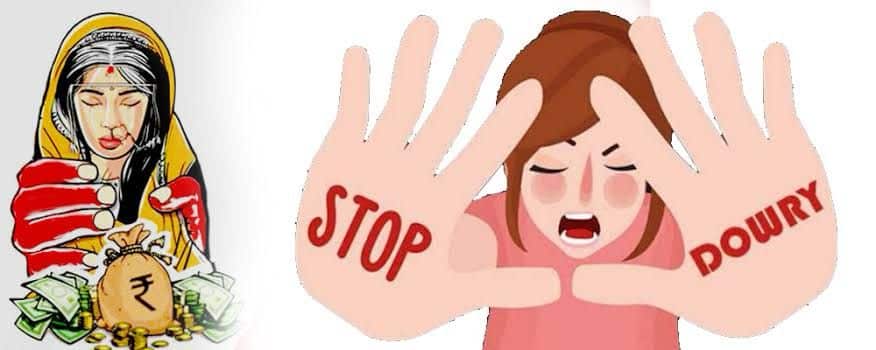
Dowry Death
Introduction:
Dowry death is a heinous crime that continues to plague societies worldwide, particularly in South Asian countries like India, where it is a deeply ingrained social evil. The term “dowry death” refers to the murder or suicide of a married woman caused by continuous harassment or cruelty by her husband or in-laws over dowry demands. Despite legal provisions aimed at preventing such atrocities, dowry deaths persist, highlighting the urgent need for stricter enforcement and societal change.
Causes of Dowry Death:
Dowry death stems from a complex interplay of social, economic, and cultural factors deeply embedded in Indian society. Pressure from families, societal expectations, and economic disparities contribute to the perpetuation of the dowry system, placing undue burden on women and their families. Failure to meet dowry demands often results in harassment, abuse, and ultimately, dowry-related deaths.
Legal Framework:
In India, dowry deaths are addressed under Section 304 ‘B’ of the Indian Penal Code (IPC), which deals with dowry-related deaths. According to this provision, if the death of a woman occurs within seven years of marriage and it is shown that she was subjected to cruelty or harassment by her husband or in-laws for dowry, it is considered a dowry death. The punishment for dowry death under IPC Section 304 ‘B’ is imprisonment for a term of not less than seven years, which may extend to life imprisonment.
Elements of Dowry Death:
- To establish a case of dowry death under IPC Section 304 ‘B’, certain elements must be proven beyond a reasonable doubt. These elements include:
- The death of a woman must have occurred within seven years of marriage.
- The woman must have been subjected to cruelty or harassment by her husband or in-laws for dowry.
- The cruelty or harassment must be related to demands for dowry.
- The cruelty or harassment must have been continuous and of such a nature as to drive the woman to commit suicide or cause severe harm or danger to her life.
304 ‘B’ IPC Dowry Death Punishment:
The punishment for dowry death under Section 304 ‘B’ IPC is severe, reflecting the gravity of the offense and the need for deterrence. Those convicted of dowry death face a minimum sentence of seven years, which may extend to life imprisonment. Additionally, the law mandates that the burden of proof shifts to the accused, requiring them to rebut the presumption of guilt beyond a reasonable doubt.
Role of Police and Judiciary:
Effective investigation and prosecution of dowry death cases require the active involvement of law enforcement agencies and the judiciary. Police must conduct thorough investigations, collect evidence diligently, and treat victims and their families with sensitivity and respect. Judges, on the other hand, must adjudicate cases impartially, ensuring that justice is served and perpetrators are held accountable for their actions.
Legal Interventions and Challenges:
While legal provisions such as Section 304 ‘B’ IPC aim to combat dowry deaths, challenges persist in their effective implementation. Inadequate enforcement, delay in justice delivery, and societal attitudes that normalize dowry practices hinder efforts to eradicate this menace. Moreover, the underreporting of dowry deaths due to social stigma and fear of retaliation complicates the identification and prosecution of offenders.
Conclusion:
Dowry death under IPC Section 304 ‘B’ epitomizes the intersection of gender-based violence, cultural practices, and legal accountability in India. Addressing this issue requires a multifaceted approach encompassing legal reforms, socio-cultural awareness, and empowerment of women. By strengthening enforcement mechanisms, promoting gender equality, and challenging deep-rooted patriarchal norms, society can strive towards eliminating dowry deaths and ensuring justice for victims and their families.


